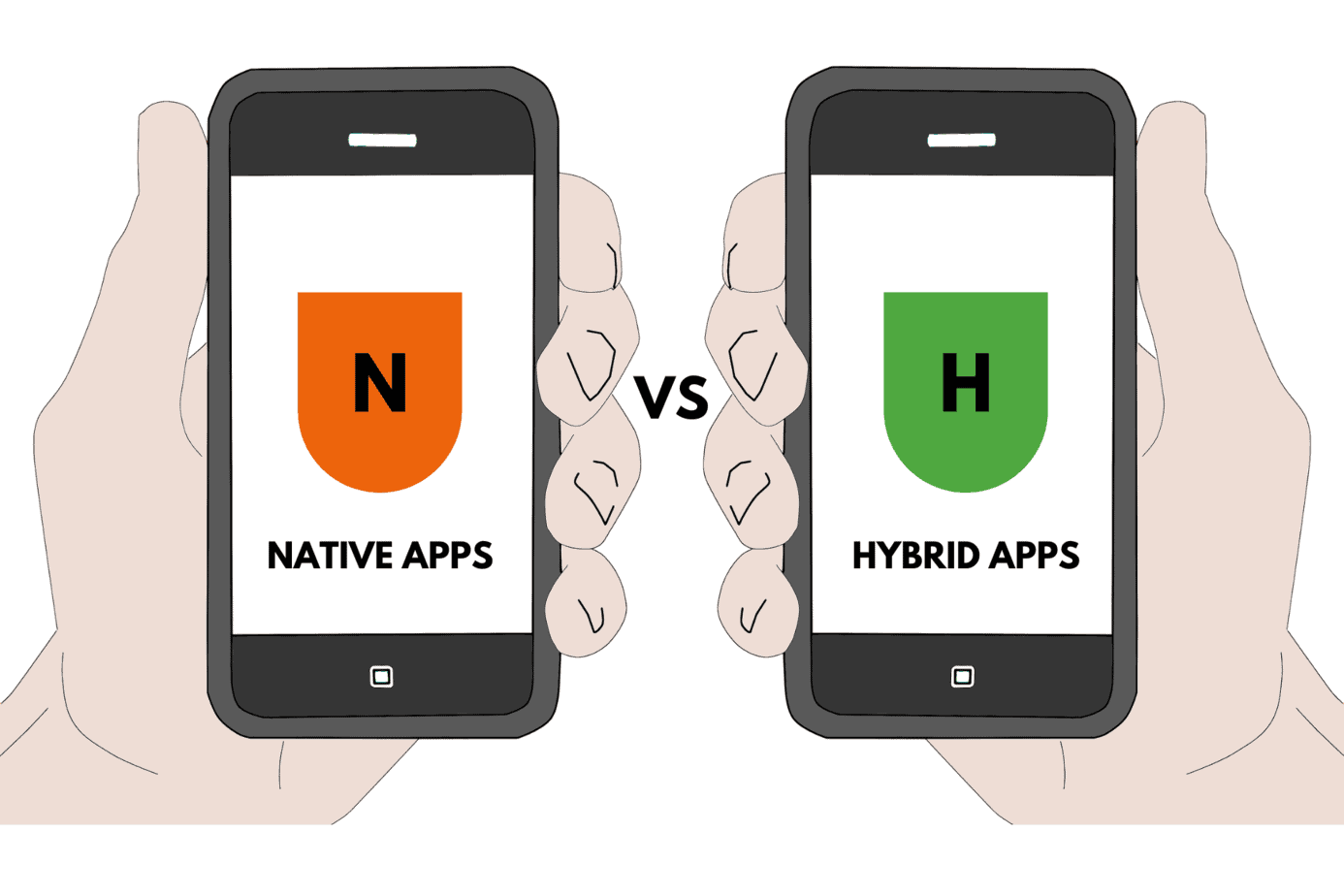
Today mobile is everything for both entrepreneurs and users. For gaming, dating, cab sharing, finance, insurance claims, email, music, etc. a mobile application is the easiest way for users to get the desired service on fingertips. In this rapidly growing digital world, mobile apps play a vital role. The development of feature-rich mobile applications has transformed numerous industries. Entrepreneurs are shifting their focus from the web to mobile apps. The drastic growth of mobile phone users lead to increased demand for mobile app development.
Developing an application that can perform well on a mobile device is no longer an option, but it is much needed. When we talk about mobile app development, the user experience beats all the other things. Also, with regards to mobile app development framework, there is an endless discussion: which is the best platform for unique application development or whether to go Hybrid application or Native application development.
Since mobile applications are progressively turning into a need for organizations of all sizes, it’s a must for an organization to have a basic knowledge about both the platforms to choose the one that best suits their business needs. Especially for a startup company, it is recommended to have a clear understanding of both the platforms to invest in the right direction.
What are Native Mobile Apps?
Native mobile apps are developed to perform on a particular mobile operating system (like Java for Android & Objective-C or Swift for iOS). Native apps offer perfect usability, a mobile app experience, and user-friendly features. Also, it offers unique features that are hard to find on any other platform.
Here are the key features offered by Native applications:
- Built-in Components: Camera, geolocation, the address book, and all other features can be easily integrated into Native apps.
- Multi-Touch: Compound user interface gestures like double-tap, pinch spread, etc.
- Convenient to use: its user-friendly features and functionality make it convenient to use.
- Fluid animation: It is related to fast graphics API
- Fast Graphics API: It offers fast graphics that help in dealing with huge data and rapid refresh.
Native Apps are created utilizing the IDE (Integrated improvement Environment). IDE provides tools for building debugging, Project Management, version control, and the wide range of tools that app developers need. At the point when android and iOS applications are created utilizing diverse IDE’s and languages, there are a ton of similarities in the development framework. Developing Native apps is not only beneficial for businesses but also for users. Users get the ultimate benefits of using Native apps.
What the End User can expect from Native Apps:
- You will find it in the store.
- When starting the app, it fires up immediately
- Consistent platform look
- Fast performance
- It tells you when the app requires an update
Native apps offer tremendous advantages. Have a look at the key benefits of Native apps:
- High functionality, reliability, and performance
- Easiest integration of the advanced features
- Best user experience
- Can receive push notifications
- Runs inside the operating system
- Fine-tuned to run on a specific platform
- Interactive and intuitive
- Interacts with device utilities
What are Hybrid Mobile Apps?
Hybrid Mobile applications are somewhat Native and halfway HTML 5. The hybrid application is essentially characterized as a web application that is on a very basic level assembled utilizing HTML 5 and Javascript, which is then wrapped into the Native container that gives the Native app-like experience. A large portion of the Hybrid applications is taking the benefit of React Native App Development Services. Entrepreneurs looking for a professional Hybrid app development company to get a technically sound product.
Like other platforms, Hybrid apps also have their own pros and cons. It serves numerous benefits to both businesses and end-users. Let’s cover some major benefits offered by Hybrid mobile apps:
Advantages Of Hybrid App Development Services
- Hybrid apps have access to a device’s internal APIs
- Low cost with ease of development
- Multi-platform support
- Only one codebase is needed for hybrid apps
- Native experience with simple backend
- Hybrid apps don’t need a web browser like web apps
- Creative ideas meet the target audience
- High-speed performance
- Attractive UI/UX designs
- Offline Support : most rewarding benefits for the end-users who have:
- limited data consumption plans
- Live in a rural or underdeveloped neighborhood
- Connections that often get interrupted
- Are always on the go
- Hassle-free integration with other apps
- Qualified for online marketplace
Hybrid apps not only remove the problem of writing a separate set of codes for different platforms but also integrate the backend and core functionality of Native Apps. Hybrid apps are basically the best combo of both Native and Hybrid. An organization that aims to remain unrivaled can choose Hybrid mobile apps for continuous growth.
Conclusion:
Based on the above discussion, the verdict of Native vs Hybrid app for mobile app development startups is clear: Hybrid apps are for those who have time and budget constraints and want to develop minimum viable products. Whereas Native apps are best for those who want to deliver amazing performance, fully customized features, and a great user experience.




